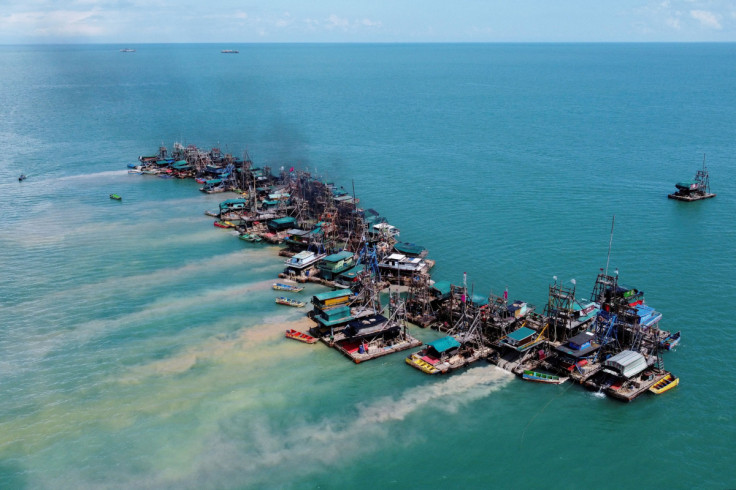Explainer-What Is Indonesia's Proposed Tin Export Ban About?

Indonesia, the world's biggest exporter of refined tin, is planning to ban exports of the metal to attract investment in processing it domestically, although the government said the timing had yet to be decided.
WHAT IS THE PLAN?
Indonesia plans to ban the export of tin ingots to encourage investors to set up productions facilities and develop its industries to process tin into other products at home, a government official said. It has a similar policy for nickel ore.
However, unlike nickel, Indonesia already exports high purity refined tin, having banned exports of tin ore from late 2014. It exports tin bars, solder bar and wires, according to trade ministry data.
The ban is part of a broader Indonesian plan to reserve mineral resources like nickel, tin, copper and bauxite for domestic processing and export higher value-added products instead of just shipping cheap raw materials.
Indonesia only consumes 5% of the refined tin it produces and exports 95%.
(Indonesia's tin exports https://fingfx.thomsonreuters.com/gfx/ce/egpbynnbkvq/Pasted%20image%201666248665963.png)
WHEN WILL THE BAN BE IMPOSED?
President Joko Widodo said the government had not decided when the ban will be implemented and the timing would be announced once authority has completed their deliberations.
Senior mining ministry official Ridwan Djamaludin said authorities were calculating how much investment and time Indonesia needed to prepare at home to be able to absorb its production.
WHAT INVESTMENT IS INDONESIA SEEKING?
Authorities may focus on seeking investment in tin forming industries and tin chemical production.
According to government data, Indonesia already has tin bar and tin coating production facilities but it does not have other forming facilities for products such as tin rod or tin powder.
An investment ministry official said the government wanted to focus on attracting investment that offers the best value addition.
HOW MUCH TIN DOES INDONESIA PRODUCE, EXPORT?
PT Timah, Indonesia's biggest tin miner and smelter, produced 26,500 tonnes of refined tin in 2021, or 7% of global output and a sharp 42% drop from a year earlier, data provided by the International Tin Association showed.
The company said its output continued to fall this year, down 26% year-on-year to 8,805 tonnes in the first half of 2022.
Indonesia exported 74,671.57 tonnes of tin metals in 2021, worth $2.42 billion, trade ministry data showed.
From January to September this year, it exported 58,178.69 tonnes of tin metals, up 11% from the same period last year.
(Global refined tin production in 2021 https://fingfx.thomsonreuters.com/gfx/ce/byprloobwpe/tin.png)
WHO ARE THE BUYERS?
China is the top importer of Indonesian tin bars, according to shipment data this year, followed by Singapore, India and South Korea.
Other buyers include Netherlands, Belgium and Turkey.
HOW WOULD A BAN IMPACT PRICES?
Chinese buyers are boosting tin imports, wary of the possible Indonesian export ban, although consumer demand is slowing along with global economic growth, Sucden Financial analyst Geordie Wilkes said on Tuesday.
"The import arbitrage was open but also the threat of an Indonesian ban also lead to what we saw with nickel is a front loading of those material imports there," he said.
"Consumption is not quite there and the profitability is a lot less considering the price has fallen quite sharply," Wilkes said, adding that market sentiment is expected to stay weak.
"We expect price to remain on the back foot for tin."
Benchmark three-month tin price on the London Metal Exchange was at $19,220 a tonne at 0823 GMT, down 50% year-to-date and is the worst performer in the LME base metals complex.
(Tin prices https://fingfx.thomsonreuters.com/gfx/ce/lbpggrrmapq/tin%201.png)
© Copyright Thomson Reuters 2025. All rights reserved.





















